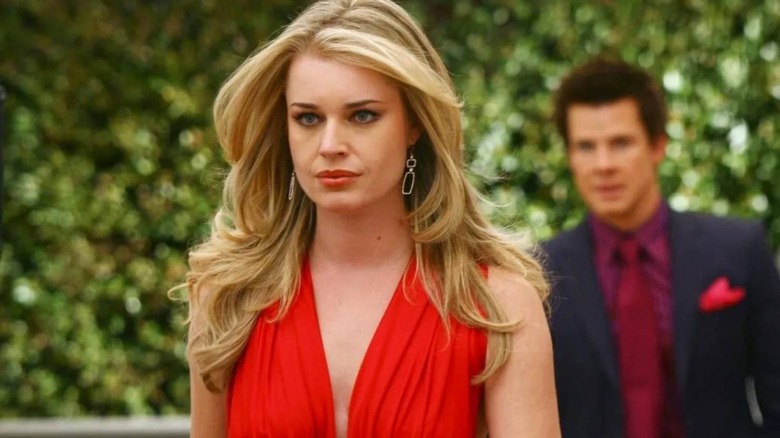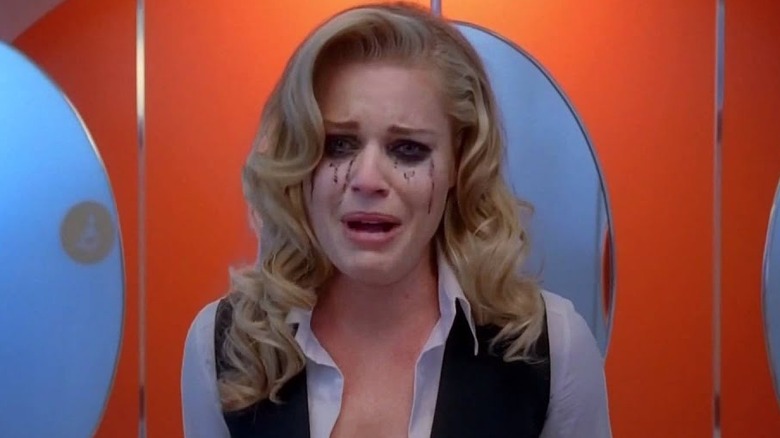The Ugly Betty Controversy Fans Would Rather Forget
Numerous TV shows, from "Friends" to "The Simpsons," have not aged well regarding trans representation in media. Things still aren't great today, but there have been improvements, especially when considering trans portrayal in something like "Ugly Betty."
Overall, the show was fairly progressive when it came to gay representation and having a Hispanic actress in the lead role with America Ferrera. But the main "Ugly Betty" controversy these days comes down to Alexis Meade, the sister to Mode magazine Editor-in-Chief Daniel Meade (Eric Mabius). She faked her death to receive gender confirmation surgery and appeared in various capacities throughout the first three seasons. However, it's easy to see why this isn't looked back on fondly considering Alexis was played by cisgender actress Rebecca Romijn.
Romijn spoke about her time playing the character to The Independent and how she wanted to do it justice. It was a fight just to get a trans character on ABC at the time, as she stated, "There was a real boys' club running the show behind the scenes at that point. So to try and make it palatable to the boys' club... they pitched me. And I jumped at the chance." But she recognizes that she shouldn't play the character today if a revival ever happens: "I do think Alexis should be cast with a trans actress." It echoes sentiments from actors in similar situations, like Eddie Redmayne regretting his performance in "The Danish Girl." 2007 wasn't that long ago, and casting a cisgender actress for a transgender role is really only the tip of the iceberg when it came to trans portrayal at the time.
Alexis Meade on Ugly Betty presents numerous problems the trans community is still trying to rectify
Rewatching "Ugly Betty" these days may be hard for some, as there are numerous problems with Alexis Meade's portrayal. There's a copious amount of dead-naming and using the wrong pronouns for Alexis. Numerous jokes are directed at her expense, and her presence in "Ugly Betty" opens up many plot holes.
For example, Alexis pre-transition is portrayed with typically masculine traits, like being attracted to women and enjoying sports. She takes on more traditionally feminine traits post-transition, like being more interested in fashion. She's not sporty at all, and she's attracted to men. While it's possible she's bisexual or pansexual, it's never commented upon. It plays directly into heteronormativity, where men must be attracted to women, and since Alexis is a woman, she must be attracted to men. The show fails to recognize that gender identity and sexuality are two different things, and given how the show handled its storylines with homosexual characters, it's frustrating it didn't provide the same level of care to Alexis.
As one final point, Alexis Meade sets an unrealistic measure for how transgender women should present themselves to the public. Rebecca Romijn is conventionally beautiful and presents herself in a highly feminine way. It creates an expectation that transgender women who want to pass should look similarly, and that's not the case. There's this idea of how transgender women should look rather than recognizing everyone's experience will be different. There's little doubt the "Ugly Betty" writers had good intentions with giving a transgender character such a prominent role on a high-profile show. "Ugly Betty" had good representation in other ways, but it's critical to examine where it fell short so that future shows may do better.

